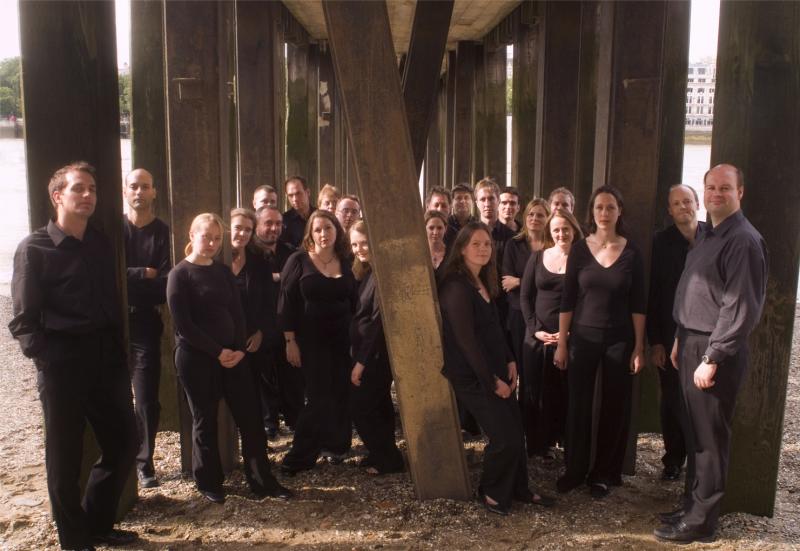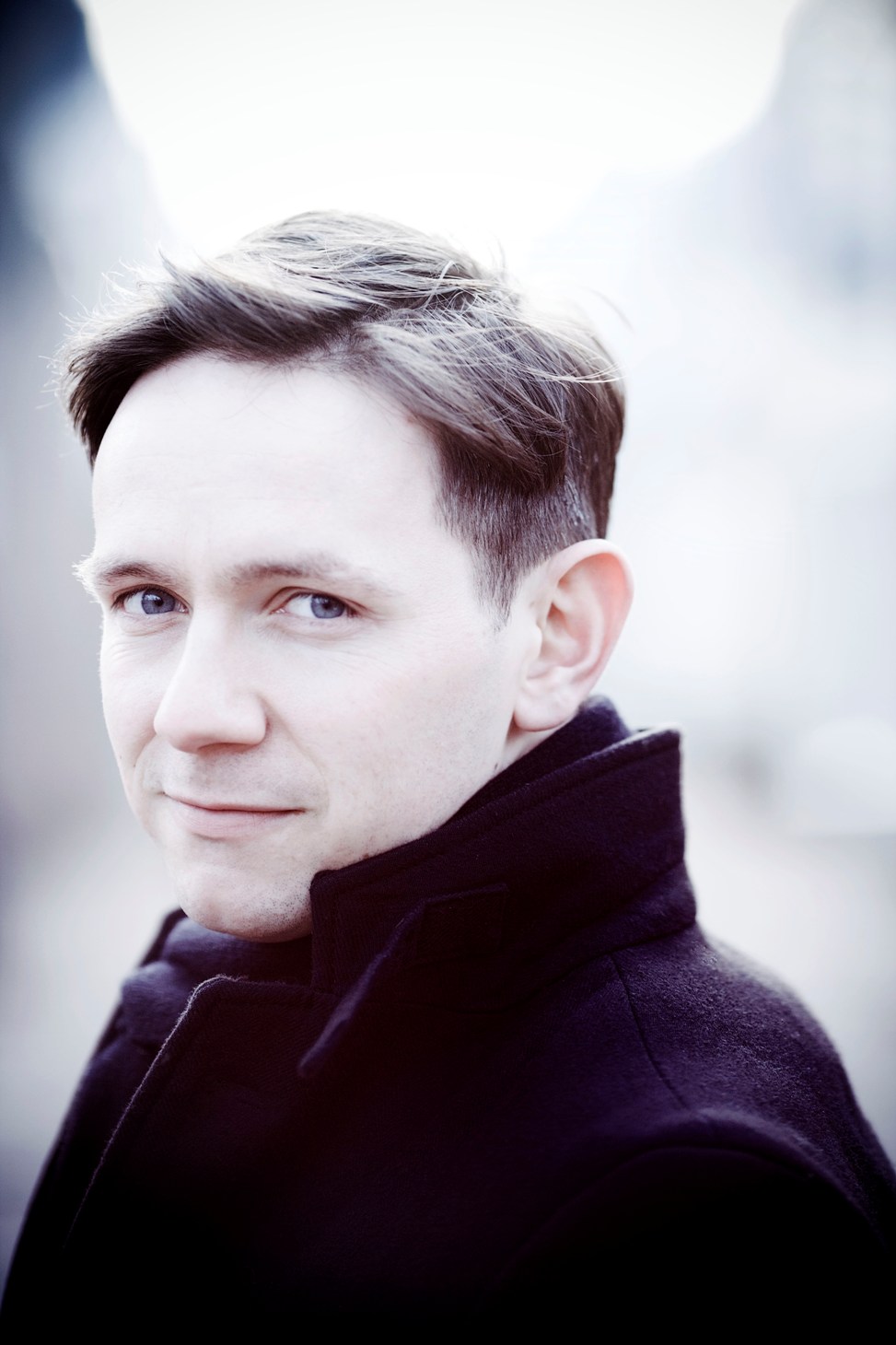Messiah, Polyphony, OAE, Layton, St John's Smith Square | reviews, news & interviews
Messiah, Polyphony, OAE, Layton, St John's Smith Square
Messiah, Polyphony, OAE, Layton, St John's Smith Square
Stylish soloists, choir and orchestra run the gamut of Handel's amazing dramatic range

Messiahs of all kinds multiply at this time of year: the meek and the threadbare as well as the proud and polished. On the Sunday before Christmas, it was hard to choose between two potential archangels who could hardly fail given their respective pedigrees. It may have initially come down to a choice between single star soloists, soprano of the year Sophie Bevan at the Wigmore or flawless countertenor Iestyn Davies (pictured below by Marco Borggreve) at St John’s.
Vital to its success was a choir which could well add “perfect” to its name, the polyphony in this case remaining expressive in every voice-part even when the spotlight has passed from one to another. The agility at conductor Stephen Layton’s faster but never rushed speeds in “For unto us”, “His yoke is easy” and “All we like sheep” could be taken for granted; more surprising given the English choral tradition's usual limits were the operatic stops pulled out in the passion sequence, the sudden blazes on words like “wonderful” and “surely”, the extreme dynamic contrasts in Handel’s wondrously original “Since by man came death”.
 Layton oversaw the continuity in the dramatic contrasts between light and dark, many of them wrought by links between the choruses and the bass airs, where Matthew Brook produced long phrases which always made expressive sense. We marvelled at Handel’s introduction of the angel-thrumming skies, soprano Katherine Watson a light, high trumpet to introduce her bigger brothers from the Orchestra of the Age of Enlightenment, the superlative David Blackadder and Phillip Bainbridge, ringing down from the gallery.
Layton oversaw the continuity in the dramatic contrasts between light and dark, many of them wrought by links between the choruses and the bass airs, where Matthew Brook produced long phrases which always made expressive sense. We marvelled at Handel’s introduction of the angel-thrumming skies, soprano Katherine Watson a light, high trumpet to introduce her bigger brothers from the Orchestra of the Age of Enlightenment, the superlative David Blackadder and Phillip Bainbridge, ringing down from the gallery.
There were further complementary styles exchanged between Neal Davies’s poised, spacious “He was despised”, ornamented with impeccable taste, and risk-taking tenor James Gilchrist’s urgent sequence at what became the dark heart of Part Two. What a shame, though, to be deprived of what would have been their meeting in "O death, where is thy sting?"
Layton drew plenty of lively nuance and rhythmic spirit from the OAE, inscaping the orchestral drama from the opening Symphony onward, and not afraid to open up the grandeur at the peak of a dancing “Hallelujah”. And to cap the lyric choral and string beauties of the concluding Amen, it was a final treat to have organist Stephen Farr move from the platform to the grander instrument at the back of St John’s. Now there’s one thing, for a start, that the Wigmore couldn’t have matched.
rating
Explore topics
Share this article
The future of Arts Journalism
You can stop theartsdesk.com closing!
We urgently need financing to survive. Our fundraising drive has thus far raised £33,000 but we need to reach £100,000 or we will be forced to close. Please contribute here: https://gofund.me/c3f6033d
And if you can forward this information to anyone who might assist, we’d be grateful.

Subscribe to theartsdesk.com
Thank you for continuing to read our work on theartsdesk.com. For unlimited access to every article in its entirety, including our archive of more than 15,000 pieces, we're asking for £5 per month or £40 per year. We feel it's a very good deal, and hope you do too.
To take a subscription now simply click here.
And if you're looking for that extra gift for a friend or family member, why not treat them to a theartsdesk.com gift subscription?
more Classical music
 Sheku Kanneh-Mason, Isata Kanneh-Mason, Wigmore Hall review - family fun, fire and finesse
Intimacy and empathy in a varied mixture from the star siblings
Sheku Kanneh-Mason, Isata Kanneh-Mason, Wigmore Hall review - family fun, fire and finesse
Intimacy and empathy in a varied mixture from the star siblings
 Mahler 8, LPO, Gardner, RFH review - lights on high
Perfect pacing allows climaxes to make their mark – and the visuals aren’t bad, either
Mahler 8, LPO, Gardner, RFH review - lights on high
Perfect pacing allows climaxes to make their mark – and the visuals aren’t bad, either
 Philharmonia, Alsop, RFH / Levit, Abramović, QEH review - misalliance and magical marathon
Kentridge’s film for Shostakovich 10 goes its own way, but a master compels in his 13th hour of Satie
Philharmonia, Alsop, RFH / Levit, Abramović, QEH review - misalliance and magical marathon
Kentridge’s film for Shostakovich 10 goes its own way, but a master compels in his 13th hour of Satie
 Bach St John Passion, Academy of Ancient Music, Cummings, Barbican review - conscience against conformism
In an age of hate-fuelled pile-ons, Bach's gospel tragedy strikes even deeper
Bach St John Passion, Academy of Ancient Music, Cummings, Barbican review - conscience against conformism
In an age of hate-fuelled pile-ons, Bach's gospel tragedy strikes even deeper
 MacMillan St John Passion, Boylan, National Symphony Orchestra & Chorus, Hill, NCH Dublin review - flares around a fine Christ
Young Irish baritone pulls focus in blazing performance of a 21st century classic
MacMillan St John Passion, Boylan, National Symphony Orchestra & Chorus, Hill, NCH Dublin review - flares around a fine Christ
Young Irish baritone pulls focus in blazing performance of a 21st century classic
 Classical CDs: Romance, reforestation and a Rolleiflex
New music for choir, orchestra and string quartet, plus a tribute to a rediscovered photographer
Classical CDs: Romance, reforestation and a Rolleiflex
New music for choir, orchestra and string quartet, plus a tribute to a rediscovered photographer
 First Person: St John's College choral conductor Christopher Gray on recording 'Lament & Liberation'
A showcase for contemporary choral works appropriate to this time
First Person: St John's College choral conductor Christopher Gray on recording 'Lament & Liberation'
A showcase for contemporary choral works appropriate to this time
 Donohoe, RPO, Brabbins, Cadogan Hall review - rarely heard British piano concerto
Welcome chance to hear a Bliss rarity alongside better-known British classics
Donohoe, RPO, Brabbins, Cadogan Hall review - rarely heard British piano concerto
Welcome chance to hear a Bliss rarity alongside better-known British classics
 London Choral Sinfonia, Waldron, Smith Square Hall review - contemporary choral classics alongside an ambitious premiere
An impassioned response to the climate crisis was slightly hamstrung by its text
London Choral Sinfonia, Waldron, Smith Square Hall review - contemporary choral classics alongside an ambitious premiere
An impassioned response to the climate crisis was slightly hamstrung by its text
 Goldberg Variations, Ólafsson, Wigmore Hall review - Bach in the shadow of Beethoven
Late changes, and new dramas, from the Icelandic superstar
Goldberg Variations, Ólafsson, Wigmore Hall review - Bach in the shadow of Beethoven
Late changes, and new dramas, from the Icelandic superstar
 Mahler's Ninth, BBC Philharmonic, Gamzou, Bridgewater Hall, Manchester review - vision and intensity
A composer-conductor interprets the last completed symphony in breathtaking style
Mahler's Ninth, BBC Philharmonic, Gamzou, Bridgewater Hall, Manchester review - vision and intensity
A composer-conductor interprets the last completed symphony in breathtaking style
 St Matthew Passion, Dunedin Consort, Butt, Queen’s Hall, Edinburgh review - life, meaning and depth
Annual Scottish airing is crowned by grounded conducting and Ashley Riches’ Christ
St Matthew Passion, Dunedin Consort, Butt, Queen’s Hall, Edinburgh review - life, meaning and depth
Annual Scottish airing is crowned by grounded conducting and Ashley Riches’ Christ

Add comment